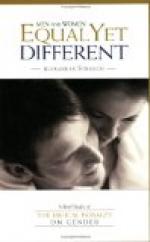During the life-time of her husband, it was her custom, in his absence, to allow those who chose to come to assemble in a room of the old rectory at Epworth, on Sunday, and either read them a sermon herself or have one of the elder children do it. Frequently, the office of reader devolved upon her daughter Emily.
No matter into what department of her life you inquire, she is still found the same active, energetic, and strong-minded woman. Nothing weak or puerile is found in her character. From girlhood to maturity, from maturity to gray hairs, she pursues the same steady, uniform course. Her life is consistent with the principles which she had laid down for her own self-government, and which she believed were deduced from the Word of God.
At seventy-two years of age, she closed a long career of usefulness, dying, as the Christian might be expected to die, in the triumphs of faith. Five of her daughters, and her son John, were permitted to stand at her bedside and witness her peaceful end, and to comply with a request made shortly before she died, that, as soon as the last struggle was ended, they should unite in singing a psalm of praise for her release.
Very appropriate were the lines of her son Charles on this occasion:
“In sure and steadfast
hope to rise,
And claim her mansion in the
skies,
A Christian here her flesh
laid down—
The cross exchanging for a
crown.”
MRS. FLETCHER.
Miss Mary Bosanquet, afterward Mrs. Fletcher, may also be numbered among the great women of the eighteenth century. While yet unmarried, she identified herself with the Methodists; and as a consequence was subjected to bitter persecution, even to being excluded from her father’s house, and forbidden to have any intercourse with the younger members of the family.
Circumstances led her to believe that it was her duty to exercise the talents given to her, in addressing public audiences, and she accordingly began speaking to such congregations as she chanced to have. Such a departure from established usage brought down upon her a storm of invective and abuse. Her family and friends felt aggrieved that she should have allowed her enthusiasm—as they termed it—to lead her into what they deemed such an indecorous proceeding; and for a time she found it exceedingly difficult to stem the tide of opposition raised against her. But her natural good sense and independence of character were greatly in her favor. Ultimately, without her having yielded to the pressure brought to bear upon her, she overcame all opposition, and her family became reconciled to her.




